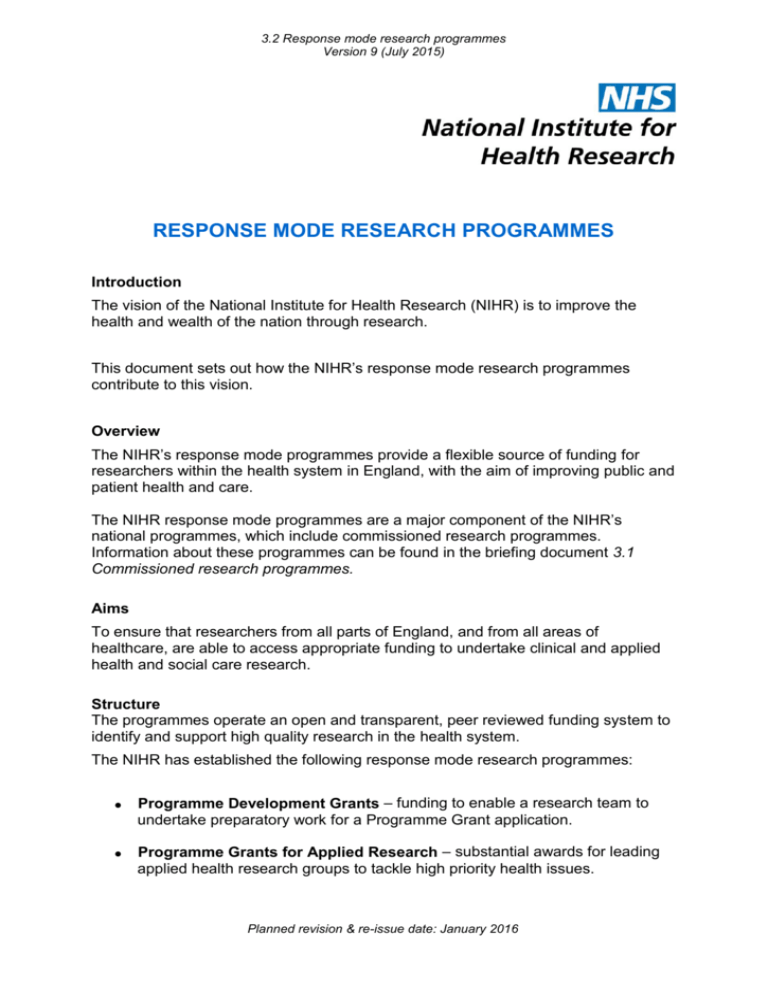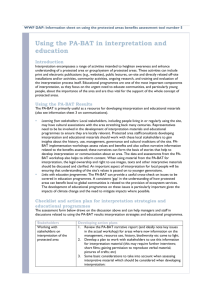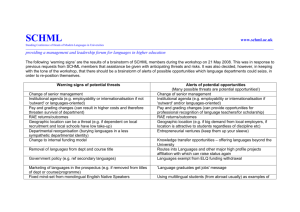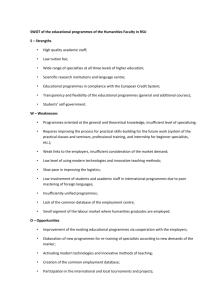response mode research programmes
advertisement

3.2 Response mode research programmes Version 9 (July 2015) RESPONSE MODE RESEARCH PROGRAMMES Introduction The vision of the National Institute for Health Research (NIHR) is to improve the health and wealth of the nation through research. This document sets out how the NIHR’s response mode research programmes contribute to this vision. Overview The NIHR’s response mode programmes provide a flexible source of funding for researchers within the health system in England, with the aim of improving public and patient health and care. The NIHR response mode programmes are a major component of the NIHR’s national programmes, which include commissioned research programmes. Information about these programmes can be found in the briefing document 3.1 Commissioned research programmes. Aims To ensure that researchers from all parts of England, and from all areas of healthcare, are able to access appropriate funding to undertake clinical and applied health and social care research. Structure The programmes operate an open and transparent, peer reviewed funding system to identify and support high quality research in the health system. The NIHR has established the following response mode research programmes: Programme Development Grants – funding to enable a research team to undertake preparatory work for a Programme Grant application. Programme Grants for Applied Research – substantial awards for leading applied health research groups to tackle high priority health issues. Planned revision & re-issue date: January 2016 3.2 Response mode research programmes Version 9 (July 2015) Research for Patient Benefit – regionally commissioned NHS research arising from daily practice to contribute to improvements in health and care Invention for Innovation – funding new solutions and ideas for medical technologies or devices that meet existing or emerging healthcare needs. Health Technology Assessment – research information about the effectiveness, costs and broader impact of healthcare treatments and tests, for those who plan, provide or receive care in the NHS. Efficacy and Mechanism Evaluation – 'science driven' studies with an expectation of substantial health gain. Managed by the NIHR and funded jointly by the NIHR and the MRC, it aims to support excellent clinical science with the ultimate view of improving health or patient care. Public Health Research – evaluates public health interventions, providing new knowledge on the benefits, costs, acceptability and wider impact of nonNHS interventions intended to improve the health of the public and reduce inequalities in health. Health Service and Delivery Research – aims to produce rigorous and relevant evidence on the quality, access and organisation of health services, including patient safety, patient experience, effectiveness of care, and costs and outcomes, in order to improve health and health services. The NIHR also funds research under some of these programmes in commissioned mode (see briefing document 3.1). Further Information Further information on the above programmes is available on the NIHR website through which information about individual programmes can be found. In addition, there is a Funding Opportunities [DN check link to asset when publishing] document summarising information about each programme. Department of Health Lead: Dr David Cox Deputy Director, Research Finance & Programmes Research & Development Directorate Department of Health Email: R&D@dh.gsi.gov.uk Planned revision & re-issue date: January 2016







